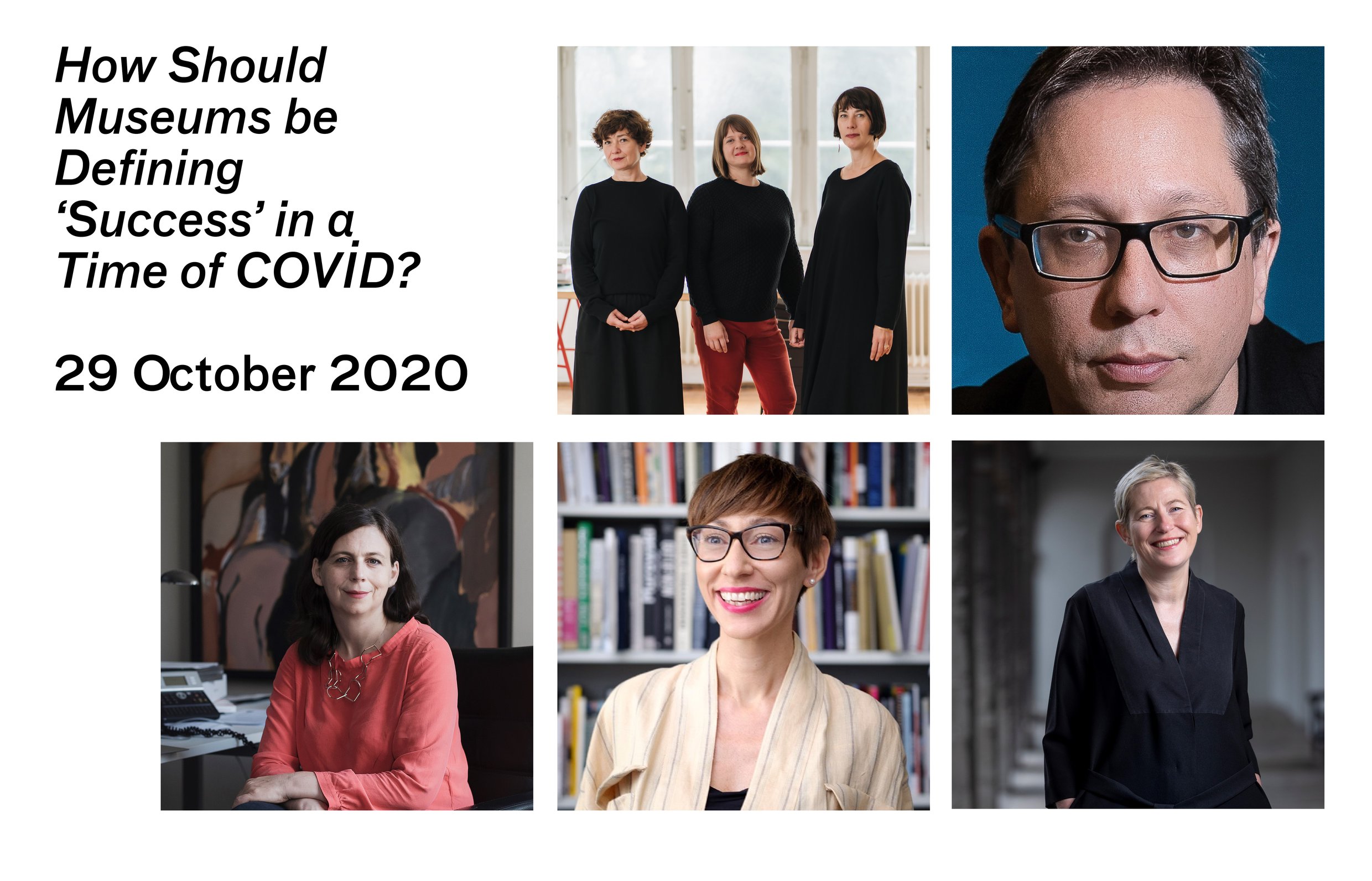How Should Museums be Defining 'Success’ in a Time of COVID?
#6 How Should Museums be Defining ´Success’ in a Time of COVID?

Thursday 29 October 2020
4:30 pm CEST
- Ferran Barenblit, Director, MACBA Museu d’Art Contemporani de Barcelona, Barcelona
- Ivet Curlin/WHW Collective,Vienna
- Annie Fletcher, Director of IMMA, the Irish Museum of Modern Art, Dublin
- Malgorzata Ludwisiak, CIMAM Board Member, Ph.D. Independent Art Critic and Curator, Warsaw
Moderated by Sarah Glennie, CIMAM Board Member and Director, National College of Art and Design, Dublin.
Abstract
As we are now more than half a year into living with the global pandemic CIMAM would like to invite its members into an open peer to peer reflection on what we have collectively learnt in the Museum sector, what the future looks like, and the nature of contemporary art museums that will emerge out of this.
Recent surveys by museum associations in Europe and United States show that the future viability of many museums is under threat as a result of the pandemic and economic crisis. Museums have reported fundamental changes in their audiences, programmes and income sources which will require radical new solutions. Should museums “adopt” to a new reality by simply downsizing to a smaller scale and less ambitious programming or should they develop new models and metrics for ‘success’ which are appropriate to our current context? Which of the institutional practices that have been already tested during last months might stay with us beyond the current pandemic and what potentials can be found for new forms of engagement with audience and artists?
Statements:
- What kind of challenges do institutions face in the context of reduced visitor numbers and a reduction in business opportunities? While our discussions clearly recognise that this moment is an opportunity for museums, it remains a massive financial challenge. The potential of increased state Funding resulting from the emergency will allow us to have a slightly different model of success and production, slower and less driven by the numbers coming through the door and activities that generate partnership funding and philanthropic support. Sarah Glennie
- There is an opportunity to claim in some of these fundamental values that culture can hold, and it is now the moment to do it, to restart something that will not be the same as before, and we will have to negotiate again with reality. Ferran Barenblit
- We have to generate a new notion of success – or even forget about this word. There will be no other option but to abandon the obsolete quantitative metrics, linked to neoliberal ethics, and return to the idea of the museum as a public service. Relationships should be put at the center of our operations: the traditional attributions of the museum -conservation, interpretation, mediation- should be the result of considering the different agents involved, including its empowered audience, but also the staff, the members of the governing bodies, the artists and scholars. Ferran Barenblit
- The question of success is not the volume of numbers but the quality of the interaction you can have with your audiences. We have an excellent education department, great programs dealing and working intensely with various communities, and now, with the pandemic situation, these values are accepted by the city and by the media much more easily. The question of numbers is not a question anymore. Ivet Curlin
- The numbers from the surveys confront us with inevitable questions of the museum's physical survival on the one hand and adapting to a new reality, on the other hand. And does adapt means simply downsizing or instead redefining what does it mean for a museum to successfully fulfill its mission, with which formats or models of operating, which of them approved to be successful, and in which terms can we talk about the future of museums? Malgorzata Ludwisiak
Did you miss it? Watch the webinar at CIMAM's only member section.